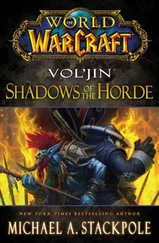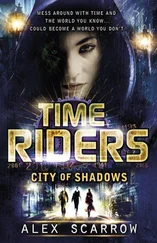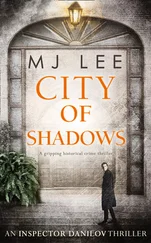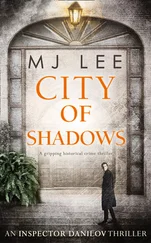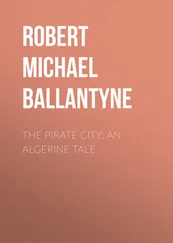Michael Russell - The City of Shadows
Здесь есть возможность читать онлайн «Michael Russell - The City of Shadows» — ознакомительный отрывок электронной книги совершенно бесплатно, а после прочтения отрывка купить полную версию. В некоторых случаях можно слушать аудио, скачать через торрент в формате fb2 и присутствует краткое содержание. Жанр: Исторический детектив, на английском языке. Описание произведения, (предисловие) а так же отзывы посетителей доступны на портале библиотеки ЛибКат.
- Название:The City of Shadows
- Автор:
- Жанр:
- Год:неизвестен
- ISBN:нет данных
- Рейтинг книги:5 / 5. Голосов: 1
-
Избранное:Добавить в избранное
- Отзывы:
-
Ваша оценка:
- 100
- 1
- 2
- 3
- 4
- 5
The City of Shadows: краткое содержание, описание и аннотация
Предлагаем к чтению аннотацию, описание, краткое содержание или предисловие (зависит от того, что написал сам автор книги «The City of Shadows»). Если вы не нашли необходимую информацию о книге — напишите в комментариях, мы постараемся отыскать её.
The City of Shadows — читать онлайн ознакомительный отрывок
Ниже представлен текст книги, разбитый по страницам. Система сохранения места последней прочитанной страницы, позволяет с удобством читать онлайн бесплатно книгу «The City of Shadows», без необходимости каждый раз заново искать на чём Вы остановились. Поставьте закладку, и сможете в любой момент перейти на страницу, на которой закончили чтение.
Интервал:
Закладка:
16. Mattenbuden Bridge
Weidengasse was a long wide street across the river from the old town, with a tramline running its length and a tram depot at the far end. It was dominated by a sprawling, drab, four-storeyed building full of windows, its facade regularly broken by square turrets. In Imperial Germany this was Danzig’s cavalry barracks, the Reiterkaserne, but it was a long time since the last regiment of Death’s Head Hussars clattered out on to the cobbles to take the road to the front line, where men and horses would die together in the mud, blown apart by mortars and cannon. It was mostly empty now, a place of echoing corridors and bare, damp, unfurnished rooms. However, at one end of the building, on the corner of Reitergasse, was the District III Police Station, serving the old docks, the warehouses of the Speicherinsel and the streets of apartments south of the Mottlau River. With the election in full swing police cells throughout the Free City were crammed with disruptive opposition supporters and the Reiterkaserne, with its easily adapted cellars and a plentiful supply of vacant barrack rooms, offered the capacity for extra accommodation. The Free City’s Gestapo men found it particularly useful.
No one at Police Headquarters in Karrenwall much minded what happened to the anti-social elements who wanted to vote for someone, almost anyone, other than the Nazis, but the building was still too close to the League of Nations Commissioner and to a Senate where there were a few politicians unpatriotic enough to ask awkward questions. The election was only two days away now and people were still trying to put up posters and hold meetings in the face of the Nazi juggernaut. There were still socialists, communists, liberals, Jews, Poles and other scum conspiring to exercise their right to vote. But it was a lot easier for an indignant Police President to deny his disdain for the constitution if people weren’t being beaten up in the next office to his. There was plenty of space for all that in Weidengasse after all. And if there was some serious business to be done, to save Danzig from its political and racial degenerates, the Reiterkaserne’s long corridors led to places where nobody would even hear the screams.
Stefan had been driven from the Stockturm across the city, through the oldest part of Danzig, into Langgasse and the Lange Markt, down to the Mottlau River and through the island docks and warehouses to Langgarten and Weidengasse. The uniformed Schutzpolizei officer drove, concentrating on blasting his horn and cursing pedestrians. The Gestapo man was still sweating, but he had become more affable once they were in the car and he was no longer on stage. Occasionally he pointed out places of interest, almost at random, as if they were on a tour. The crenellated facades of the eighteenth-century houses in Langgasse; the Neptune Fountain; the Ratsweinkeller under the Town Hall, which he thoroughly recommended for the quality of its beer and the size of its dumplings; the great medieval crane along the Lange Brucke as they crossed the river and left the old town.
In Weidengasse Stefan was put in a cell with seven other men. They included a newspaper editor whose paper had just been shut down for the third time since February, a fourteen-year-old boy who had put up an election poster outside the parliament building, and a pickpocket who claimed he was a Party member and didn’t see why he should be locked up with a bunch of degenerate politicos. After two hours, Stefan was taken up to an interview room. He stepped round an old woman cleaning blood off the wall and the stairs. Someone had been unlucky enough to trip and knock his head against the wall on the way down. They were very unlucky stairs.
In a bare room that reminded him uncomfortably of Pearse Street Garda station the tour guide was joined by another Gestapo man. He announced himself as Kriminaloberassistent Rothe. The first thing they did was to tell Stefan what he wanted to know. They asked him why he was asking questions about Anna Harvey. What exactly was his relationship with her? Did he know where she was? They asked him if he knew where she was too many times. It didn’t tell him where she was, but he felt sure the police didn’t have her. And if she’d avoided the police, who else would be looking for her? The Gestapo men didn’t seem at all clear what else they wanted from him. They had been told to find out if he knew where the woman was and that was it. He could sense, as a professional among professionals, that they were now looking for questions to ask to justify a report that would say nothing.
‘So, who is she, Hannah Rosen or Anna Harvey?’
‘I know her as Anna Harvey, that’s all, Mrs Harvey. Maybe Rosen was her maiden name. I don’t think she’s been married very long. Look, we’re not old friends. I’m not up on her bloody family history.’
‘Did she change her first name too?’
‘I don’t know. My name’s Stefan, but most people call me Stevie.’
The questions came almost exclusively from the crop-haired Rothe now.
‘Did you know she was Jewish?’
‘Yes, I suppose so. I hadn’t really thought about it.’
‘Did you know she’d been living in Palestine?’
‘That must be where she got her suntan.’
The tour guide grinned. Rothe didn’t.
‘Why are you in Danzig, Herr Gillespie?’
By now it was clear he wasn’t there for a Gestapo thrashing. He didn’t have the information they wanted. He knew when something mattered and when it didn’t. He was a policeman. This wasn’t important to them. He remembered the conversation with Arthur Greiser. He could take a chance.
‘Look, if I knew where the bitch was, I’d tell you. What’s she done?’
‘It’s not your business.’
‘It’s not her husband after her then?’
He had their attention. They thought he was opening up. Maybe they’d get something out of him after all. The tour guide offered him a cigarette.
‘What do you mean?’ asked Rothe.
‘I had some business in Berlin. We arranged to meet up, you know. A bit of fun, no strings. I don’t know what she was doing in Danzig, but it seemed as good a place as any. I liked the sound of Zoppot too. And if you’re going to fuck a man’s wife, well, the further away the better.’
‘She was waiting for you here, is that what you’re saying?’
‘Yes.’
‘Did she know anyone in Danzig?’
‘No idea. I’ve only been seeing her a couple of months. Mostly in England. It’s a night here, a night there. That’s how these things go.’
‘But it seems she didn’t wait.’ Rothe wasn’t entirely convinced yet.
‘Her husband’s been a bit suspicious. Maybe she changed her mind.’
The tour guide grinned. The Kriminaloberassistent was less amused.
‘You fuck a lot of Jewesses?’
‘It’s not illegal, is it?’
‘It will be,’ he barked, looking at Stefan with disgust.
‘It’s just a fuck. What’s his problem?’ He winked at the tour guide. That was when the slap came. It was only a slap, but it was hard enough.
‘Jesus!’
‘Filthy bastard.’ Rothe was in the mood for more.
‘I don’t know what she did to you, but it looks like she’s dumped me now, the bitch.’ Stefan shrugged as if to say it was a pain in the arse but only a woman. ‘Doesn’t look like I’ll make it to Zoppot after all. Pity after what Herr Greiser told me on the plane.’ He laughed a sly-dog, boys-will-be-boys laugh that was a fair stab at the Senate President’s style. ‘What did he say? A place not to be missed or a great place to get pissed?’ He sniggered. And now he really had their attention. ‘We’d had a couple. You know Greiser!’
He stopped. No need to overdo it.
Читать дальшеИнтервал:
Закладка:
Похожие книги на «The City of Shadows»
Представляем Вашему вниманию похожие книги на «The City of Shadows» списком для выбора. Мы отобрали схожую по названию и смыслу литературу в надежде предоставить читателям больше вариантов отыскать новые, интересные, ещё непрочитанные произведения.
Обсуждение, отзывы о книге «The City of Shadows» и просто собственные мнения читателей. Оставьте ваши комментарии, напишите, что Вы думаете о произведении, его смысле или главных героях. Укажите что конкретно понравилось, а что нет, и почему Вы так считаете.

